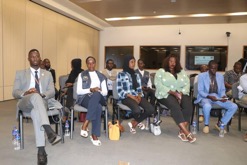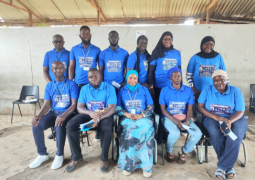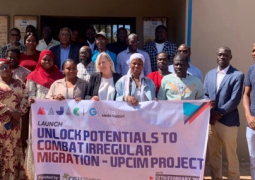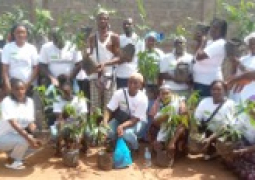
The event held at the International Conference hall in Bijilo, attracted over 50 youth across the country. The event was held under the theme; “Steering Conversations to Advance The National Youth Development Agenda.” In addition, the forum is also designed to enable youth leaders, authorities and UNFPA to have meaningful conversations as well identify issues affecting youth development and proffer solutions
Declaring the event open, Alhagie Jarju, executive director at the National Youth Council, reminded that the attainment of sustainable development goals would be an elusive dream without the full participation of the youth.
The forum, he added, seeks to outline issues and challenges, propose solutions and priorities for consideration in the next UNFPA country programme.
He described the forum as a great opportunity for youth leaders to be able to network and share ideas, while urging them to participate fully to find solutions to their problems.
Ndeye Rose-Sarr, UNFPA country rep, described the forum as ‘timely’, coming at a time when the country’s new cabinet and parliament have been established.
“There is a greater need for all to support differently-able people and protect them from sexual violence as well as all forms of discriminations in the society.”
Bakary Y. Badjie, minister of Youth and Sports, described the timing of the event as quite apt in view of the fact that it would also enable youth and authorities to dialogue on issues of concern.
Minister Badjie commended NYC and UNFPA for their efforts in initiating such an important forum.
“The Gambia government is coming with National Development Plan and it would be in line with the challenges affecting the masses and the youth in particular. There are lots of policy reforms ongoing in the country and my Ministry would continue communicating with youth leaders so that issues affecting their wellbeing are addressed.” he said.
Lamin Fatty, acting executive director of Gambia Federation of Persons with Disability, said persons with disability are the most vulnerable in the country, adding that they are neither represented in the Parliament nor involved in decision-making processes.
Read Other Articles In National News





